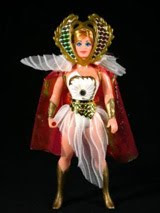
This was awesome - it took me right back to my own awkward days of middle-school existence. Howe has a way with words that makes it seem like the reader is right there among the characters. Perhaps the reader IS the fifth member of the Gang of Five? Just a thought. At first the language bothered me, "goes" rather than "said" and the word "like" in like almost like every like sentence, but as I read on I began to think of the audience this book speaks to, and I realized - this language is just like the language that these characters would use. A middle-school or high-school-aged individual would be able to really relate to the dialogue in the book.
I think that this book has the power to speak directly to the prejudices and stereotypes that are reflected in schools, not only among students - but among teachers as well. If you have ever been present in the "teacher's lounge" you know what I'm talking about. In the book we see the transformation that the teacher, Ms. Wyman makes: from a closed-minded "from the books" teacher, into one who is accepting and supportive of the diverse ideas of her students. She decides to make a conscious effort to change herself, which leads to the rise of the No-Name Party and the eventual change of the entire school body.
Another powerful message the book holds, is the power of "free speech" - being able to vocalize what you know is right can make all the difference. My sisters are currently in high-school (important to add - at a very conservative, rural high-school), and as part of their Freshman English class, the entire class now reads the book The Misfits, and orchestrate a "No-Name Campaign" of their own. The book had a massive impact on them, I never realize where their newly found congressional motivation stemmed from until NOW when I read the book for myself. It can spark an interest in democratic politics, and can create a "call for action" among students. This is just what we need! We need students who are willing to speak-up for themselves, and what they KNOW can help create change within the school.
As far as controversy is concerned, the book portrays themes of adolescent hormones, homosexuality, democratic-activism, and non-conformist thinking. Um, the last I checked all of these things are "part of middle-school" and "creating your identity." I don't think that it is fair that this (or any book really) has been labeled as "controversial" because controversy is constructed - it's ambiguous.
P.S. On the news a couple days ago, I saw that - according to the tabulation of students who reported being bullied, or bullying others, on a survey conducted in accordance with Iowa's anti-bullying bill - "bullying" has decreased from 23% of students to 13%. It would be interesting to know when the original data was collected. Could it be a reflection of Howe's book being used in high-schools, or an increased awareness of the problem? Good news anyway, for those of us who are ready for a change on the issue.


No comments:
Post a Comment